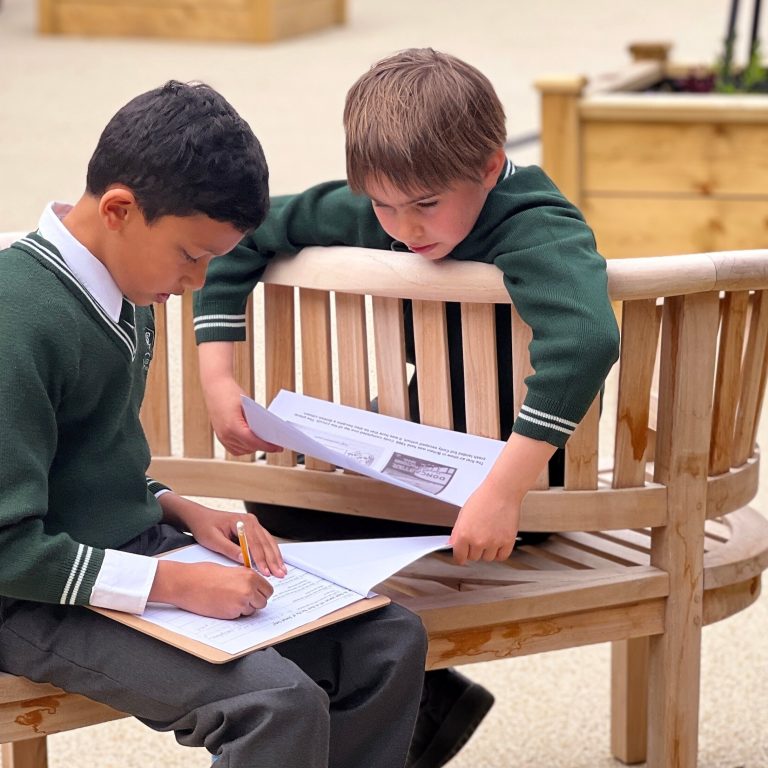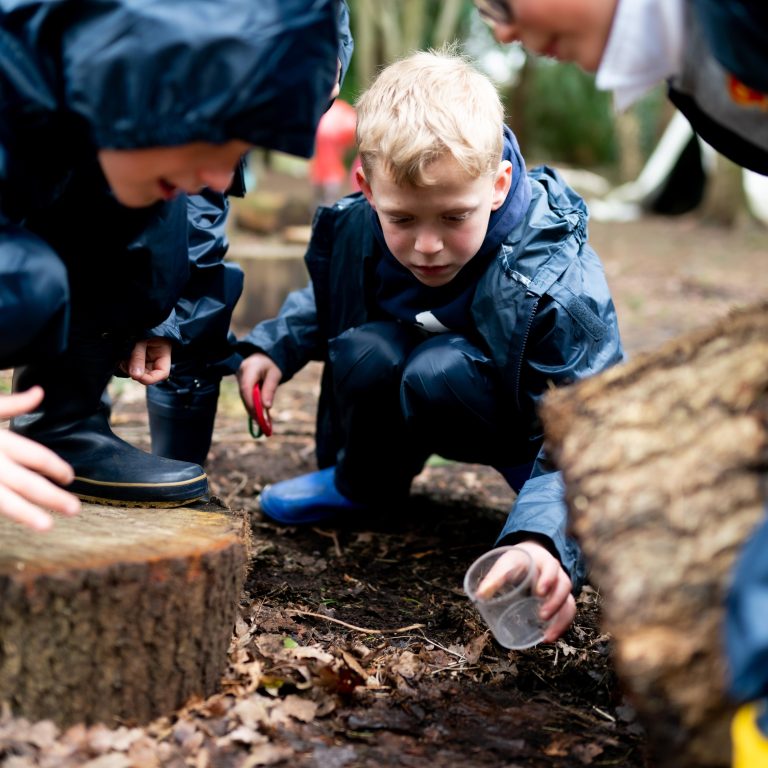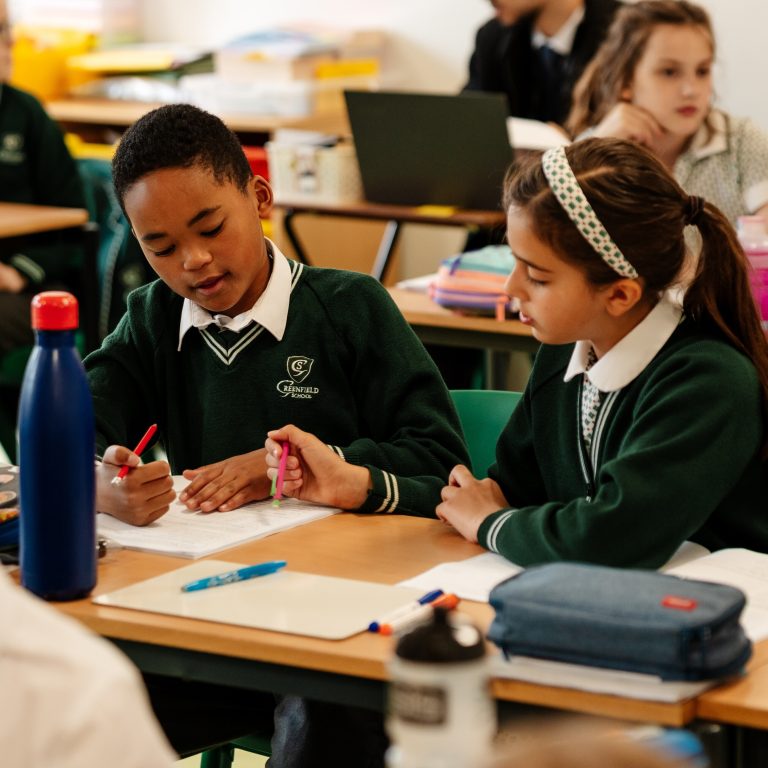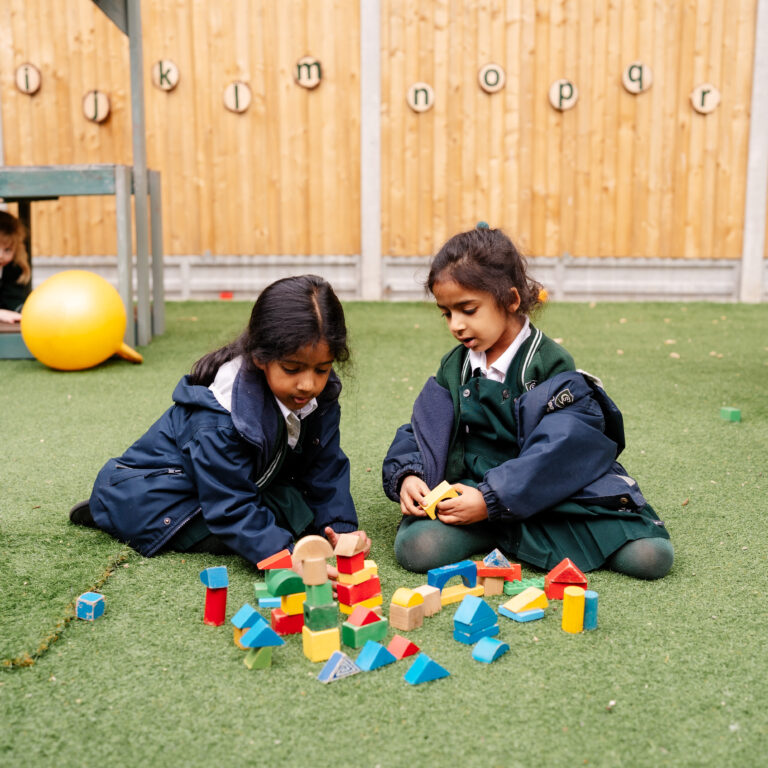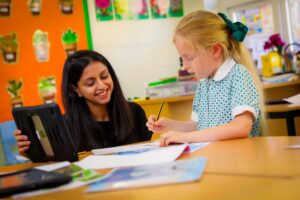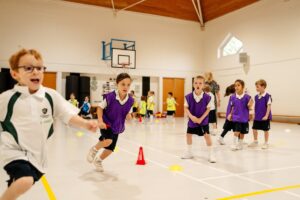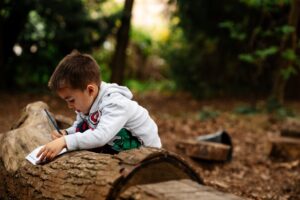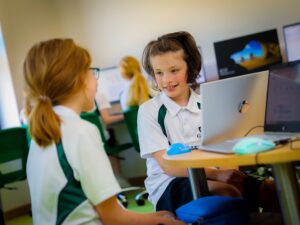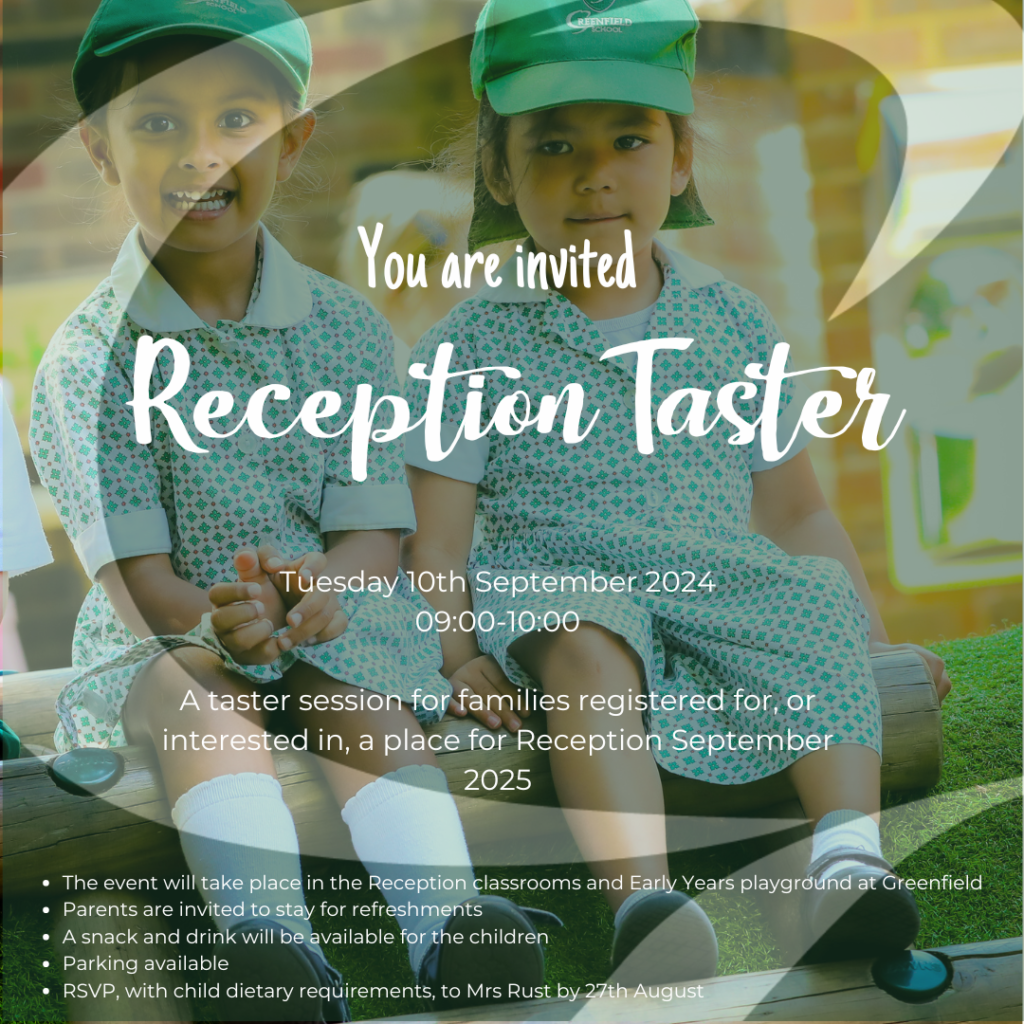Nurturing a positive outlook and mental wellbeing is a core part of our approach at Greenfield. We consider how the shaping of a child’s primary education can nurture their mental health for years to come.
With one in ten children suffering some form of mental health issue at any one time, most commonly anxiety, depression, self-harm and eating disorders [1], there is a requirement for all people working with children to understand the many different causes and manifestations of mental health struggles. At Greenfield, our strong pastoral roots and modern approach has kept children’s mental health and wellbeing at the forefront of our education, but the aftermath of a pandemic and months of home-learning has put this under greater scrutiny than ever before.
In The Spotlight: Mental Wellbeing
After many months of unchartered navigation through a global pandemic, the importance of mental health has been an issue thrust to the forefront of conversations, throughout the media as well as our personal lives, and the need to nurture and strengthen our mental wellbeing has never been more pressing. As the world around us altered drastically, the efforts of parents doubled as they attempted to supervise education and simultaneously shield their children from the stress, anxiety and instability of living in lockdown. YoungMinds reported that one in six children aged five to 16 were identified as having a probable mental health problem in July 2020, a huge increase from one in nine in 2017.[1] Spending countless hours together as a household meant that many of us were confronted by the fragility of our families’ mental health and undoubtedly reinforced the role schools play in maintaining children’s mental wellbeing.
A Dynamic Approach
The happiness and wellbeing of every child has always been a cornerstone of Greenfield’s ethos, aiming to ensure that each child is valued and encouraged, and our history of change means that we are somewhat accustomed to adapting our approach and supporting children through changing times. Rather than being shackled to traditions, we regularly review our approach and ask ourselves, “is this generating the best outcome for the children?” The addition of Enrichment Days, shorter lessons, Forest School, a school dog and student champions are just some of the ways in which we have prioritised the children’s wellbeing, whilst maintaining excellent academic standards.
The Greenfield Way
Upholding the belief that constant testing is not beneficial for a child’s education or wellbeing, we actively seek alternative ways to monitor pupil progress. Through the close relationships between pupil, teacher and parent, the school is able to keep track of each child’s progress effectively and small-group teaching ensures all our pupils receive the input they need to make progress in a safe and secure environment.
By streamlining our approach to assessments, we aim to protect our children from adverse mental effects caused by assessment weeks and ‘setting’. If we learnt one thing through the pandemic, it is that academic stress can be experienced by all children, regardless of their aptitude, ability or outside factors, and this can manifest itself in countless ways.
Test anxiety, in particular, can negatively impact children, causing sleeping problems, mood changes, obsessive behaviour, apathy and even physical symptoms (e.g. stomach aches, headaches, loss of appetite) [3]. Our annual PASS (Pupil Attitude to School and Self) assessment monitors pupil wellbeing by tracking their responses to questions about their perception of their own ability, their teachers and school life. This vital information provides our staff with the opportunity to intervene, often before their feelings have fully manifested. This system has alerted us to children who may be more susceptible to mental health issues and often highlights pupils who otherwise appear perfectly happy and enables us to intervene.
A Work-Life Balance
Greenfield approaches homework with flexibility and aims to motivate children to take on extra tasks in areas they enjoy. In Years 1 to 6, optional “Take-Away” Homework tasks are offered to children in any subject; these are often creative tasks that incite resourcefulness and imagination in certain areas of learning that a child might wish to pursue outside of school hours. Additional tutoring is not encouraged, as we believe it is important for children to play and enjoy their weekends. The famous “work-life balance” is just as important for children as it is for adults. We firmly believe the lessons within school, alongside light homework provides our children with all of the preparation and learning they need to achieve outstanding results, whilst prioritising their mental health.
The Importance of Music
It has long been documented that music can positively impact mental wellbeing and schools undoubtedly hold a responsibility for ensuring all children have access to music from a young age [4]. From Fledglings (nursery room for children aged from 6 months) up to Year 6, music is included as a regular part of the children’s routine. Infants and nursery children enjoy live music sessions with a music teacher, allowing them to experiment with instruments (and their voices), exposing them to rhythm and melody from a young age. Musicianship is then fostered extensively throughout the school with regular music lessons as well as providing the opportunity for pupils to have one-to-one instrumental lessons at school.
We are musical beings. Every one of us has a heartbeat, and in that heartbeat we have a rhythm. Every one of us speaks, and in speaking we have pitch and tone. Pitch, tone and rhythm are the fundamental components of music. As such, music is part of who we are – all of us. It is no wonder people bond over music, as it is fundamentally entwined into what it means to be alive and interacting with the world. Each one of us has some relationship and connection to music, and so talking about or playing music can be a common ground on which to connect and relate to others. Equally, music can be an expression of one’s culture, which can be heard and understood by the other participants in the social situation.
Richard Bennett, music therapist at music therapy charity Nordoff Robbins.
Building Confidence and Strength
With ongoing investment into facilities for performing arts and sport, we are now better equipped to develop confidence (as well as countless other ‘soft-skills’) in our children during these important formative years, giving them the strength and resilience required to carry them into adulthood. With musical and dramatic performances staged from Early Years upwards, every child will experience performing in front of a crowd, honing their talent and building their confidence. Likewise, every child has the opportunity to represent their school team in a range of sports in local fixtures and tournaments; studies show that developing a child’s involvement in a variety of sports at young age (without over-emphasising competitive pressure) develops their sense of personal identity, their sense of morality, as well as maturity to work alongside others [5]. As Greenfield grows, we continue to promote a sport-for-all mentality and place equal importance on opportunities for our Sports Masters as well as those who are less able or less interested (because that’s okay too!).
Moments of Quiet
Two areas of quiet, secluded woodland abut the school grounds and form the two ‘Forest School’ areas for outdoor learning. The Forest Schools are used daily for their meditative and reflective qualities, as well as providing us with a place to deepen our understanding of nature and the creatures we share the Earth with. Children enjoy sessions where they are able to independently manage their time in the Forest School; taking their own exploration or simply enjoying playtime in the soothing atmosphere of the forest. For World Mental Health Day, children were invited to think about and portray their happy place and then visit the Forest School for quiet reflection — undertaking a carousel of mindful activities including cloud watching, creating mandalas, and yoga practice.
At the end of every Forest School session, the children are asked to give one word that describes how they are feeling after spending time in the forest. Responses have included: ‘adventurous’, ‘relaxed’, ‘happy’, ‘grateful’ and ‘proud’. These responses support the hundreds of studies which have been conducted to explain the positive impact the natural world has on our mental health.
One session in the forest can change someone’s day, but regular sessions in the forest can change someone’s overall outlook on the world and how they deal with things; building confidence, courage and resilience.
Forest School – What Are The True Benefits of Outdoor Learning?
Student Champions
One particular scheme that is a direct result of the pandemic, is the introduction of our Student Champions. As we tentatively returned to school after the first lockdown, it was evident that we were all feeling nervous and harbouring new concerns about the fragility of life as we knew it. Children were enormously impacted by the lockdown and understandably felt uncertain about school, especially when so many precautions had to be put in place to enable them to return. Student Champions are a selection of older pupils and staff who volunteer to act as a listening ear to anyone with worries or concerns at school. Student Champions are plentiful, so the hope is that there is always someone that a child feels comfortable confiding in available to listen.
Our Responsibility
By enriching the children’s formative years with varied experiences including social responsibility, performing and listening to live music, practising a range of sports and taking regular trips to the Forest School, Greenfield aims to strengthen every child’s happiness, confidence and empathy — viewing this as a fundamental key to academic success. Ultimately, we must accept that taking care of one’s mental health is not a quick fix.
Nurturing a child’s mental health, like any adult’s, is a fluid journey that is never complete; but in doing so we cultivate an environment where support, love and trust for oneself and those around us is a given, and in turn we aim to raise happy, confident, mentally robust children. By creating a safe atmosphere of stability with consistent practices, children can continue into adulthood equipped with the mental capabilities and tools they need to venture through life’s many twists and turns. Greenfield aims to embolden every child on their individual journeys of self-discovery with gentle guidance in a secure environment, where passion, exploration and laughter are always at the heart of their success.

